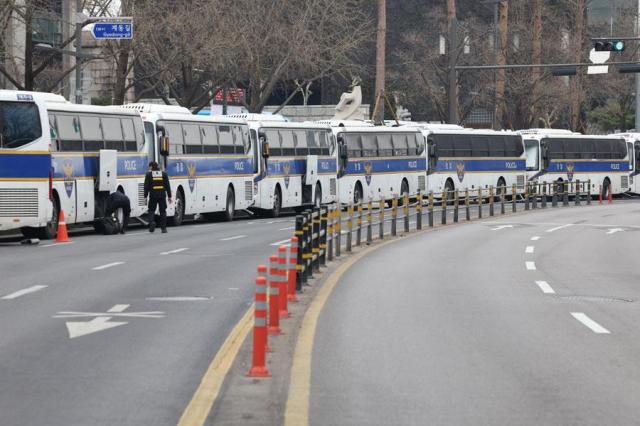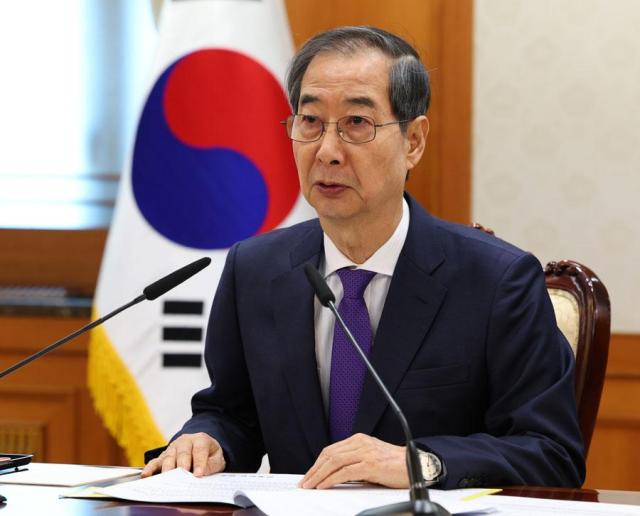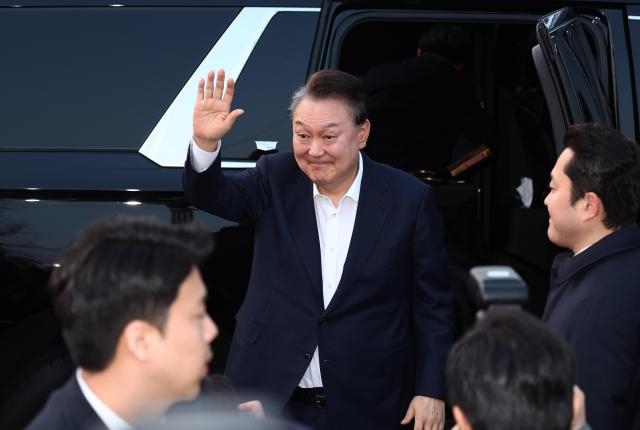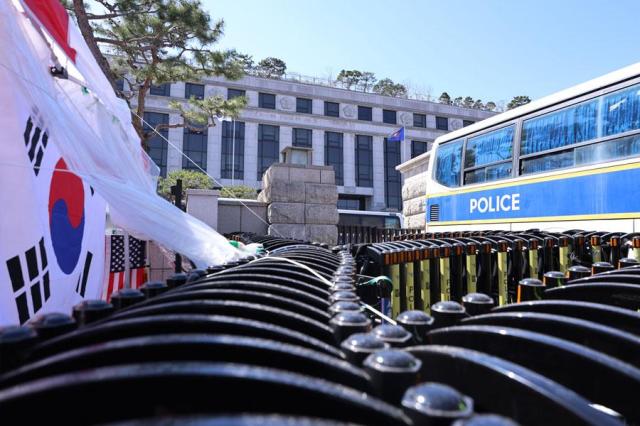
With the court's ruling just two days away, protests from both sides are intensifying and turning violent at times, accompanied by overnight vigils and rallies near the courthouse, raising concerns about potential clashes if either side refuses to accept the court's final verdict on Yoon's botched Dec. 3 declaration of martial law last year.
In a meeting with key officials on Wednesday, Acting President Han Duck-soo said, "Whatever the court's verdict may be, we must remain calm and accept it in compliance with the rule of law."
Stressing national unity, Han added, "With the strength and wisdom of South Korean people, we will surely overcome the current crisis and conflict." Han also urged politicians and others to refrain from making provocative remarks that could incite illegal protests or violence, warning that the government will not tolerate any unlawful or violent acts.
Han's remarks came amid growing concerns from experts that heightening tensions and deepening divisions could lead to massive chaos depending on the verdict, putting the country's hard-fought democracy at risk.

In a customary manner, presiding justice Jung Hyung-sik from the court's current eight-seat bench is expected to present his opinion first, followed by the other justices in order of their appointment, beginning with the most recently appointed.
According to the court's internal guidelines, if all judges unanimously agree to uphold an impeachment, the explanations are given first before the ruling. If their opinions are split, the ruling is announced first. However, these guidelines are not legally binding and may be adjusted as needed, as seen in past cases.
During more than a dozen hearings including preparatory sessions with testimonies from some 16 witnesses since mid-January, the court deliberated whether Yoon's abrupt declaration of martial law had sufficient legal grounds, as well as whether the mobilization of military personnel to storm government facilities such as the National Assembly and the National Election Commission and the alleged attempt to arrest a handful of lawmakers were legally justifiable.
But Yoon, who attended most of the hearings in his defense, dismissed all allegations, arguing that the declaration of martial law was a legitimate exercise of presidential power to resolve an impasse in state affairs, which he claimed was caused by the main opposition Democratic Party's abuse of its parliamentary majority through a spree of impeachment attempts against key officials who opposed the party, as well as other political obstructions.
Given intense public interest, the verdict will be televised live, with about 20 seats available to the public through an online lottery. Due to high demand, the court's website once crashed due to heavy traffic on Tuesday as over 90,000 people rushed to sign up.
Yoon is unlikely to attend his final verdict as late President Roh Moo-hyun and former disgraced President Park Geun-hye also did not appear in court for their trials.
A decision to uphold Yoon's impeachment would require at least six votes in favor, resulting in his immediate ouster from office and a snap presidential election within 60 days, which could take place in early June. But if more than three justices dismiss or reject his impeachment, Yoon will be reinstated and immediately return to his post.
Copyright ⓒ Aju Press All rights reserved.




View more comments